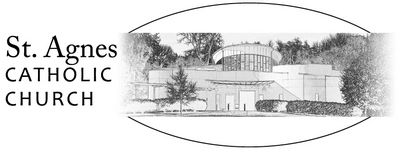Catholic Corner
November 8, 2020
Sunday is also known in the tradition of the Church, as the First day, the Eighth day, the Day of Resurrection, the Lord’s Day. It is not the Sabbath! The Jewish Sabbath runs from sundown Friday to sundown Saturday (days are counted from sundown to sundown in Jewish tradition). From the very beginning, Christians recognized that Sunday carried special meaning.
Per the Gospels, Jesus rose from the dead on the first day of the week. Looking at the appearance accounts in the Book of Acts, many of are specifically mentioned to have occurred on Sunday. For these reasons and more Sunday was the day that the earliest Christians gathered to celebrate the Eucharist. Even the very early Christianized Jews who still kept Jewish Sabbath would then gather on Sunday to celebrate the Eucharist. Sabbath and Sunday were not confused.
Another name given to Sunday early in Christianity is the eighth day. There is an eschatological significance to this term. The number eight turned on its side is the infinity symbol. The day of resurrection is the beginning of a new age, the Kingdom of God. It is the day with no end, where the baptized labor to carry out their baptismal commitment and build the Kingdom.
Sunday is also called the Lord’s Day since it is the day of the Lord’s Supper or the Eucharist. The early Church gathered once a week for their Eucharistic celebration. Since Sunday was not a holiday, they would gather after work to celebrate. Paul gives us a window into this celebration (1Cor11:20) providing a description which we would all find familiar along with some interesting corrections for the community at Corinth.
Sunday is the original celebration of the resurrection! Easter is a later development. Indeed, we can say that Easter is a very big Sunday!! And because Sunday is the original celebration of Easter joy it is known as a Day of Joy! And because it was known as a Day of Joy, Christians through the first many centuries had a strong position (actually it was put in the canons of the Council of Nicaea) forbidding fasting or kneeling on Sundays or at any time during the Easter Season!!! Kneeling was understood as a sign of penance and was therefore forbidden on a Day of Joy. St. Augustine noted that we stand in memory of the resurrection, even as St. Basil wrote that we stand on Sunday because we are risen with Christ. Every Sunday we gather to celebrate one thing, Christ, the resurrection and the life, and our life in him!
